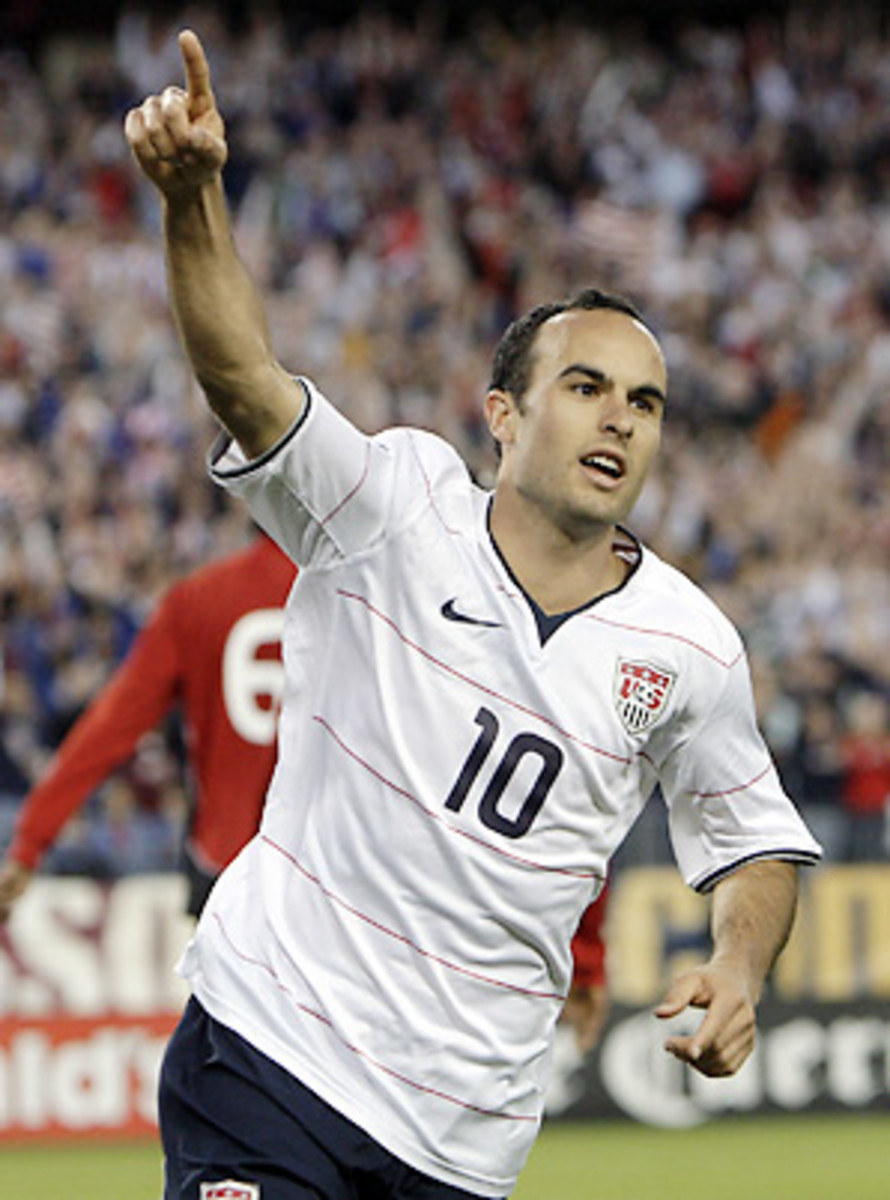MLS enough for qualifying mettle?
Contrary to popular belief, there's a very good reason for U.S. coach BobBradley not to rely on every MLS player who might be playing well when it comes to assembling a squad for Hexagonal qualifiers. In many cases, they don't measure up.
The pace and intensity of MLS, sad to say, doesn't come close to what the Americans have faced in San Salvador and San José, Costa Rica, and certainly will be nothing like a visit to the Estadio Azteca in mid-August, whether or not the match is played day or night. One can assume the Americans will qualify for the 2010 World Cup regardless by winning its home games, but as a hard-fought 2-1 victory over Honduras showed, those aren't gimmees, either.
In its two road matches so far, the U.S. has extracted exactly one point, and needed an incredible two-goal rally in the final minutes to get out of El Salvador with that singleton, which is better than what Mexico accomplished last weekend. One of the heroes of that 2-2 game, Frankie Hejduk, does play in MLS, but he's also a veteran of two World Cups and numerous trips to Central America, where survival instincts are just as important as skill.
Might it be that Landon Donovan's invaluable but somehow unsatisfying performances for the national team are rooted in the environment in which he plays his club ball? Are Jonathan Bornstein's up-and-down showings for the U.S. caused by fluctuating form or the relatively modest demands of MLS? Sacha Kljestan, a crafty and skillful player, certainly has been given enough chances to establish himself as a midfield regular for the national team, yet both Chivas USA and the national team have proved they can win without him.
The glaring gap between MLS and the Hexagonal is demonstrated by MarvellWynne, whose deficiencies are evident in league play but far more costly at the national-team level. And if Steve Cherundolo and Hejduk are healthy, does Wynne even get called in for the June qualifiers and the Confederations Cup? Perhaps Jonathan Spector would have struggled on the turf at the Estadio Ricardo Saprissa, too, but it's doubtful he'd have looked nearly so out of his element as did Wynne.
Take the much-maligned Brian Ching out of the lineup and the relative lack of polish from Jozy Altidore and Conor Casey is obvious. Both Altidore and Casey should be sharper in the Confederations Cup, and hopefully Bradley can also give considerable time to Charlie Davies. Experienced players like Ching know how much they must ratchet up their performance from the MLS level to handle the Hexagonal, but even a veteran lacking recent action for his club team -- like DaMarcus Beasley -- has his own issues adjusting to the demands.
On the other hand, is too much expected of Clint Dempsey, who is a role player in a defensive system at Fulham, a low-scoring team that conceded fewer goals than all but the top three Premier League finishers, and is given a much greater attacking burden on the U.S.? (He tied for the Fulham team lead in goals with seven.) Or is he simply just worn out from a long EPL season, a much tougher grind than he experienced in MLS?
The time for experimentation is not in the Hexagonal, as proved by a rather bold decision by Bradley to play a three-man midfield in Costa Rica. That might have worked with more quickness in midfield and a better start than conceding two goals in the first 13 minutes, but on the other hand, losses in seven straight games in Costa Rica, on grass and artificial turf, indicate the decision to try something different probably wasn't going to make all that much difference.
Maybe Bradley really believes that the best time to give Kenny Cooper an extended run in the squad will be next month in the CONCACAF Gold Cup, but that scenario could be upended if he moves to a European club. Instead, Bradley is taking Freddy Adu, Benny Feilhaber and José Francisco Torres to South Africa, where the competition will be severe but the consequences of failure minimal in a dry run for the fabulous footy fest next year.
Since he took over, Bradley has looked at more than 60 players and experimented quite a bit, in friendlies and the earlier CONCACAF World Cup qualifying rounds. What a player has done at other levels, for the U-20 and Olympic teams -- as well as MLS in some cases -- doesn't translate directly to the national team, especially during the Hexagonal, where players sweat blood for their country and those who can't step up are ruthlessly exposed, particularly on the road.






